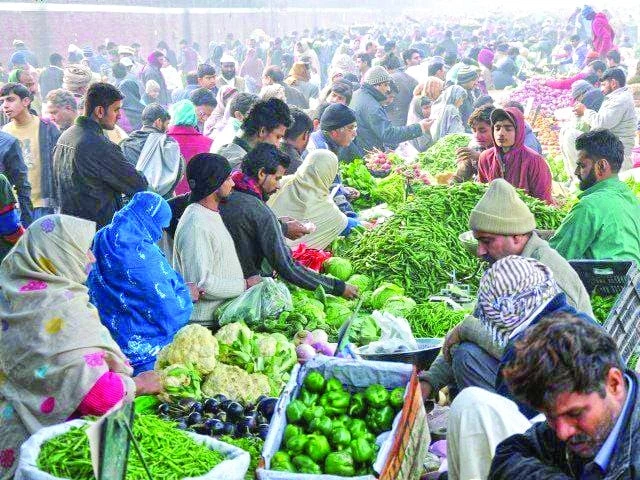Missed tax targets top concern: ADB
Holds Pakistan's growth forecast at 3%, urges consistent policy implementation

The Asian Development Bank (ADB) on Tuesday kept Pakistan's economic growth forecast unchanged at 3% and cautioned that failure to meet revenue targets and delays in executing critical reforms remain "top concerns."
In its biannual flagship publication, the Asian Development Outlook, the Manila-based lender said it did not expect any major adverse impact of the floods on inflation and economic growth, though it stressed the urgent need for reforms.
"Pakistan's economic outlook faces several downside risks that could adversely affect growth and macroeconomic stability," warned the lender. It said missing revenue and fiscal consolidation targets or delaying critical reforms remain major concerns.
The ADB singled out missing the tax target as a concern, especially at a time when the International Monetary Fund (IMF) has also questioned the outcomes of the Federal Board of Revenue's (FBR) transformation plan. The lender also noted that policy slippage could weaken business confidence, raise borrowing costs, and increase external financing risks.
The bank highlighted that Pakistan continues to face structural challenges and vulnerabilities, exacerbated by recurring climate-induced hazards. Given these challenges, consistent policy implementation is crucial to enhance resilience and policy credibility, it added.
Top priorities, it said, should be lowering the energy sector's high costs and reforming taxation to improve efficiency and fairness. It also urged lowering trade and investment barriers, advancing reforms in state-owned enterprises, strengthening governance, and fostering sustainability.
Sources said that real reforms in the power sector are still missing and that improvements in reducing circular debt are often shown by giving subsidies from the budget or taking new loans. For this fiscal year, the Power Division will add another Rs500 billion to the circular debt, which will be offset through budget subsidies, according to a recent IMF briefing.
The ADB added that faster reform implementation and a more favourable external environment could boost investor confidence and push growth above current expectations. It also listed the recent Pakistan-US trade deal as a factor that would help alleviate uncertainty, sustain trade and investment flows, and strengthen investor confidence to attract foreign investment.
External sector
The lender has predicted that the external balance will remain stable over the medium term despite subdued export growth due to flood-related disruptions in rice and cotton production.
It advised allowing a more functional foreign exchange market with a flexible exchange rate to ensure resilience in remittances and maintain a nearly balanced current account this fiscal year.
Imports are expected to grow faster as higher food imports addressing flood-induced shortages and greater raw material imports driven by the expected manufacturing recovery, thereby widening the trade deficit.
Remittances will be bolstered by maintaining external stability through a robust policy framework, supported by a stable exchange rate and by the need to support families back home recovering from floods. Higher remittances may partly offset a decline in private consumption resulting from lower agricultural output and, consequently, lower farm incomes, the ADB added.
Growth forecast
The ADB said a boost to economic activity is expected from easing debt and balance-of-payments risks and renewed business confidence spurred from the US-Pakistan trade deal. But flood damage to infrastructure and farmland may decelerate growth.
Even so, ADB retained Pakistan's 3% growth forecast, "reflecting the expectation that economic performance will be buoyed by continued reform to address structural weaknesses". The government, however, has set a 4.2% growth target for this fiscal year.
Household consumption, representing nearly 80% of total domestic demand, slowed to 4.2% in the last fiscal year as crop losses reduced farm incomes, though strong remittances partly offset this weak performance and supported household spending.
Inflation
The ADB forecast inflation rising to 6% this fiscal year, up from last year's average of 4.5%, due to flood-related supply chain disruptions affecting food prices and higher gas tariffs.
While international commodity prices and the exchange rate are expected to remain stable, fiscal measures in the budget and base effects from food and energy will push inflation higher in FY2026 from its recent lows, it added.
Investment is anticipated to increase with greater business confidence, declining interest rates, and fiscal consolidation, which will reduce government borrowing needs and create space for private sector lending.
Fiscal situation
The ADB stressed that achieving fiscal consolidation is critical for sustaining economic stability. The new budget targets a primary surplus equal to 2.4% of GDP and an overall deficit of 3.9%, declining gradually over the medium term. Tax revenue is projected to rise to 13.2% of GDP in FY2026, supported by tax administration and policy efforts.
The ADB noted restrictions on non-filers of income tax returns in major transactions such as buying fixed or moveable assets as part of tax administration measures. However, the government has already delayed or diluted these restrictive measures under pressure from the business community.






















COMMENTS (1)
Comments are moderated and generally will be posted if they are on-topic and not abusive.
For more information, please see our Comments FAQ